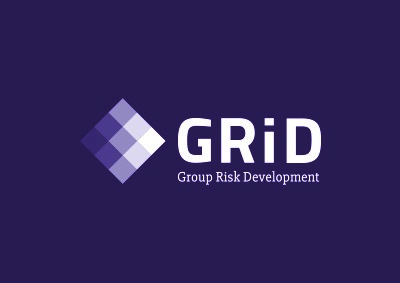Press release 8 January 2019.
Increased knowledge of group risk benefits a must.
Businesses that are looking to get the most out of their approach to recruitment and retention would do well to start by looking at the benefits of group risk, says GRiD, the industry body for the group risk protection sector. Particularly now, as employees return from the Christmas break – traditionally a time to job-seek. The benefits don’t just support employees but can be a great support to a business too.
Group risk benefits (employer-sponsored life assurance, income protection and critical illness protection benefits) throw a financial lifeline to a family when they need it most, so it’s easy to see why these benefits are of value to a workforce – particularly at a time when the State is drawing back and the UK’s household ‘saving ratio’ is so low.* However, GRiD believes that if the inherent benefits to the sponsoring organisation itself are not properly understood, then budget is unlikely to be allocated for them.
Lack of understanding, holding employers back
This is substantiated by statistics from GRiD’s own employer research** which highlights that only a third (32%) of businesses who currently offer group risk, use all of the support available to them regularly, and in fact nearly three quarters (73%) were keen to be enrolled on a course to improve their working knowledge of group risk benefits.
Figures from a report by software provider Cascade HR***, highlight the fact that employee engagement is the biggest challenge for HR professionals in 2019, closely followed by recruitment and retention. Yet, according to GRiD’s research, only a fifth (21%) of employers currently see group risk benefits as a major selling point at interview and review stages – potentially under-estimating their value. This might be because of their lack of knowledge, both of the main benefits, as well as the many, lesser-known – and therefore under-utilised – elements of a group risk package which can help the organisation and support the cause for offering them.
Benefits for employees and employers
HR departments who are looking for help in recruitment and retention would do well to start by looking at group risk. Such benefits can support the business strategy, whether this is to be more paternal by offering staff broader benefits, improving productivity, enhancing morale, or managing absence better.
In addition to financial support, added-value benefits within group risk products can include Employee Assistance Programmes, access to a second medical opinion, fast-track access to physiotherapy and talking therapies, early absence interventions, line manager and HR support, mental health support, mental health first aid training and more. Increasingly, group risk support also includes help in encouraging better health behaviours such as through access to GP services and health tracking apps.
Katharine Moxham, spokesperson for GRiD, said: “Enlightened HR staff tend to see exactly how group risk is of benefit, helping with recruitment, retention, engagement and productivity, but that’s not always obvious to those who have lesser working knowledge of the products or those outside of the HR department.
“Even with the distractions of Brexit, the Government’s flagship ambitions for health and wellbeing at work are still forging ahead, as outlined in the Government’s Improving Lives roadmap, the Taylor Review, the Stevenson/Farmer Review and the latest policy paper launched by the Department of Health & Social Care, “Prevention is better than cure: Our vision to help you live well for longer”.**** All of these place additional expectations firmly on employers to support their workforce better, to help reduce the disability employment gap and to make positive changes that will help improve the lives, health and happiness of their people, so businesses need to prepare to take up the baton.
“Given their increasing obligations, employers could sit back and wait until government best practice advice becomes legislation. Or, given the competitive nature of recruitment, particularly as staff return from the holiday season, it may be better to get a step ahead by being proactive and to use group risk products to achieve a healthy and inclusive workforce. This benefits both employer and employee alike.”
- Ends –
**The research was undertaken by Opinium on behalf of Group Risk Development (GRiD), amongst 500 HR decision makers in 500 UK businesses, including 100 in companies with more than 250 employees, during November 2017. The GRiD Research was sponsored by Aviva, Canada Life, The Chartered Insurance Institute, Ellipse, Generali Global, Gen Re, JLT, Kerr Henderson, Legal & General, Medical Expenses Consulting (UK) Ltd, Munich Re, Punter Southall Health & Protection, Quantum Advisory, SCOR, Self-Assured Ltd, Swiss Re, Unum, Wingate Benefit Solutions, Xafinity Consulting and Zurich Corporate Risk.
***Employee engagement is the biggest challenge for HR professionals in 2019, according to a study by software provider Cascade HR. Two-fifths (40%) of respondents to the survey of 423 UK HR directors, managers and executives pinpointed engagement as the major issue for next year, with recruitment and retention a close second (37%) and third (36%).
For further information please contact:
Sharon Mason
SMUK Marketing and PR
smason@smuk.org.uk
Mob: 07747 611773
Land: 01252 843350
Katharine Moxham
Spokesperson for GRiD
Katharine.moxham@grouprisk.org.uk
Mob: 07887 512508
Notes for editors
About GRiD
Group Risk Development (GRiD) is the industry body for the group risk protection sector, promoting the value to UK businesses of providing financial protection for their staff, enhancing their wellbeing and improving employee engagement. Our membership includes insurers, reinsurers and intermediaries who have a collective wealth of experience built over years of operating in the group risk protection market. Under the chairmanship of Steve Bridger (MD Group Protection, Corporate, Aviva UK Insurance) GRiD aims to promote group risk through a collective voice to Government, policymakers, stakeholders and employers.
GRiD works with government departments and regulators involved in legislation and regulation affecting group risk benefits, and with other organisations involved in the benefits and financial protection arenas. GRiD also seeks to enhance the industry’s standing by encouraging best practice and by participating in industry-wide initiatives such as the professional qualification in group risk managed jointly with the Chartered Insurance Institute.
GRiD’s media activity aims to generate a wider awareness and understanding of group risk products and their benefits for employers and employees.
GRiD’s dedicated spokesperson, Katharine Moxham, provides expert media comment on a full range of group risk issues.
Follow Katharine Moxham on Twitter @KMoxham


